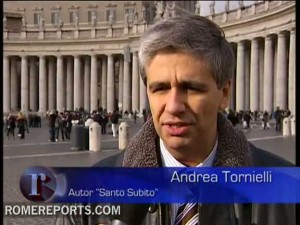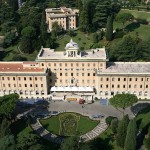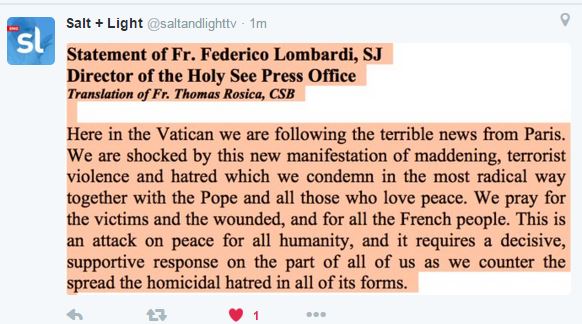 Pope Francis has said that we should “mess up the Church”–and there are those among the Vatican-watchers who would claim that’s exactly what’s happened in the first eight months of his papacy.
Pope Francis has said that we should “mess up the Church”–and there are those among the Vatican-watchers who would claim that’s exactly what’s happened in the first eight months of his papacy.
- “Who am I to judge?” he said, when asked about homosexuality; and several Illinois lawmakers cited his remark in defense of their vote to legalize same-sex marriage in their state.
- “The church sometimes has locked itself up in small things, in small-minded rules,” he said. “The most important thing is the first proclamation: Jesus Christ has saved you.”
- He revived Cardinal Bernardin’s “seamless garment” approach, leading some progressives to suggest that the hard work of pro-life activists is unimportant–saying, “We cannot insist only on issues related to abortion, gay marriage and the use of contraceptive methods…. But when we speak about these issues, we have to talk about them in a context.”
- He cast his own staff in an unfavorable light, speaking about Vatican officials. “Heads of the Church have often been narcissists,” Pope Francis said, “flattered and thrilled by their courtiers. The court is the leprosy of the papacy.”
- When his off-the-cuff remarks suggested that atheists could also be saved, it was necessary for Vatican spokesperson Fr. Thomas Rosica to clarify, explaining that church teaching also holds that “those who through no fault of their own” don’t know about Jesus but seek God and try to do his will can also attain eternal salvation.
This warm, informal Pope has won the hearts of many, but his controversial soundbytes have shaken others’ confidence in Church teaching. Perhaps that is why yesterday, he enlisted the help of a new speechwriter. Monsignor Paolo Luca Braida, an Italian priest who lives near the Pope at the Domus Sanctae Marthae and heads the Vatican Secretariat of State’s Italian Section, will now be coordinator of papal speech and homily writing.
Monsignor Braida replaces Giampiero Gloder, who assisted Pope Benedict XVI in the final years of his papacy and who has, until this week, led the speechwriting team for Pope Frances. Gloder has been named Bishop and President of the Ecclesiastical Academy, the school that trains the Vatican’s future diplomats.
 Papal biographer Andrea Tornielli, writing in the Italian newspaper La Stampa, reports that Monsignor Braida has been contributing to the preparation of the Pope’s speeches for some time now. The nephew of a priest who led an apostolate in service of the blind, Msgr. Braida assumes the position of papal text writing coordinator at a time when the position is of increasing importance, as the Pope’s public commitments have increased and hence the number of addresses made.
Papal biographer Andrea Tornielli, writing in the Italian newspaper La Stampa, reports that Monsignor Braida has been contributing to the preparation of the Pope’s speeches for some time now. The nephew of a priest who led an apostolate in service of the blind, Msgr. Braida assumes the position of papal text writing coordinator at a time when the position is of increasing importance, as the Pope’s public commitments have increased and hence the number of addresses made.
Tornielli explains:
Some homilies and speeches are written by the Pope in person. Other addresses are prepared by the Secretariat of State or by other Vatican dicasteries and offices according to the Pope’s instructions. Francis often speaks off-the-cuff, adding bits to his speeches at the last minute. On many occasions when he sets his written speech aside, these are still considered as the words officially pronounced by the Pope if they are delivered in some form or another to the intended recipients. But this is not always the case. When Francis celebrated mass at Verano cemetery on Friday 1 November, he did not use the prepared homily, which was not to be taken into consideration on this occasion, the Vatican Press Office informed.
When the Pope travels to Italy or abroad or attends certain events, local bishops are given the chance to present requests, make suggestions and mention situations that should be taken into account during the preparation of speeches. Each Pope has his own style, his own language, tone and points of emphasis. Whoever collaborates in the preparation of the Pope’s speeches needs to take this into account.











